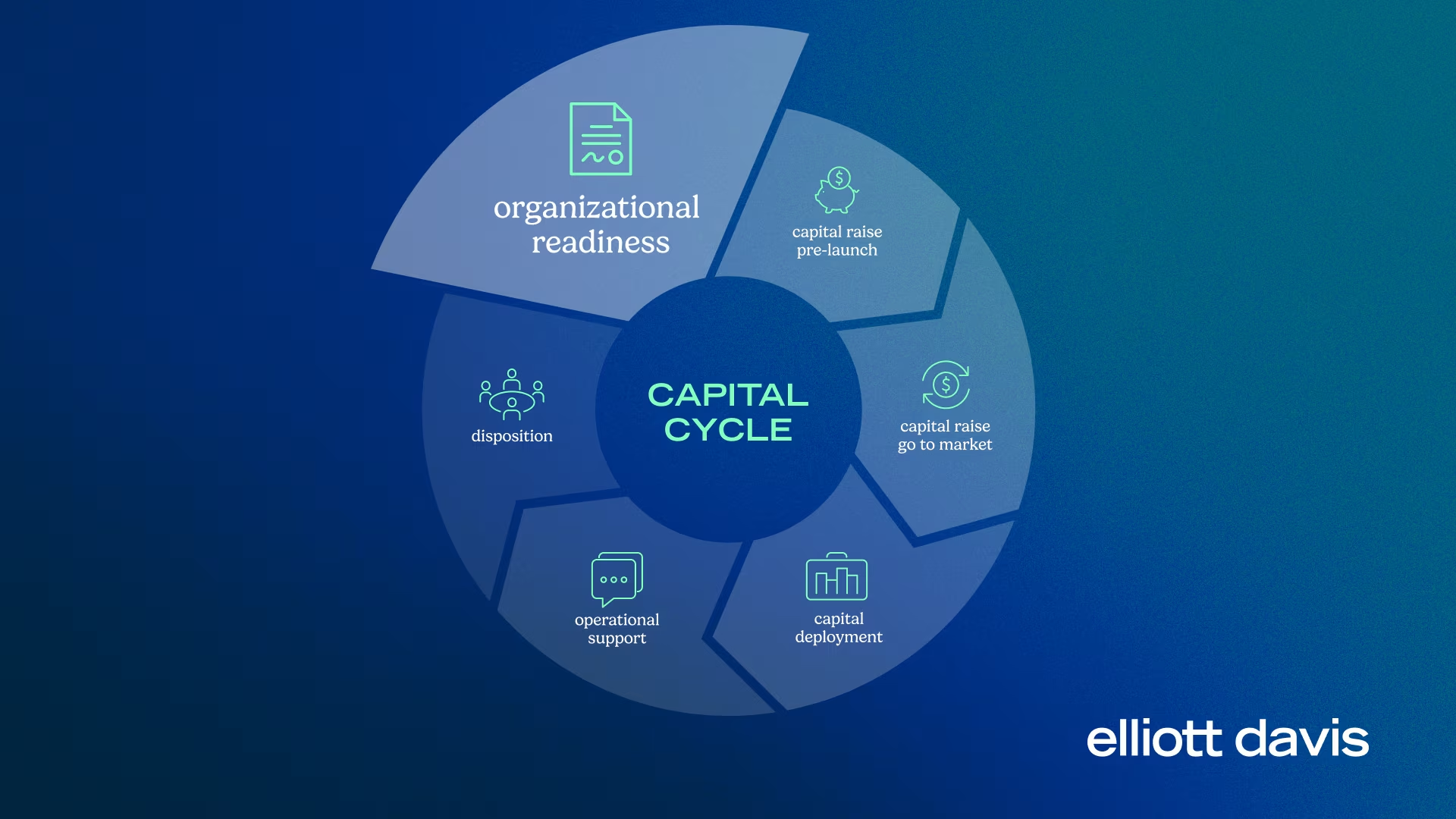search for solutions by category, industries, insights, and people.



Securing capital is just the beginning. The real challenge for real estate firms starts after the check clears. This is when investors expect answers, lenders require reports, and partners demand structure.
And that’s where many firms fall short.
Too many real estate companies hit this milestone without the right internal systems to support it—finance teams are under-resourced, reporting tools are outdated or nonexistent, and controls are loosely defined, if they exist at all. What was once a promising project becomes a hectic scramble to meet basic expectations.
This article, the first in our Real Estate Capital Cycle series, explores what it takes to be capital-ready, starting with people, processes, and internal controls.
Real estate firms often rely on outdated practices that were suitable in previous cycles. However, as capital moves back into real estate, there is growing pressure for operational excellence.
Scattered spreadsheets, undocumented workflows, and an over-reliance on a single controller now raise red flags during due diligence. Lenders and institutional investors want Generally Accepted Accounting Principles (GAAP) compliant reports and partners expect real-time project visibility. Firms with legacy accounting systems are stuck trying to backfill a financial story they should have been telling all along leading to gaps between what capital demands and the firm can provide.
These gaps have serious consequences. We’ve seen delayed deals, dropped confidence, and valuation concerns, which all trace back to a lack of organizational readiness.
No one expects a real estate firm to operate like a Fortune 500 company. But with millions in investor capital at stake, firms find that the standard for acceptable financial reporting quickly rises. Investors want financial clarity, risk-mitigating controls, and timely reports they can trust.
Yet too many firms miss the mark. Material weaknesses in internal controls are projected to rise by more than 20% in fiscal year-end 2024. In fact, over 140 public companies had to restate financials last year after informing investors that earlier reports were inaccurate.
One developer we worked with learned this the hard way. Despite securing tens of millions in outside capital, investor funding was paused when reporting failed to meet GAAP standards. They had the vision and the momentum, but not the structure to back it up. The Elliott Davis team stepped in, trained their staff, and advised in developing investor-ready reporting protocols to restore trust and move the deal forward.
In this capital climate, confidence is currency. The firms that win aren’t always the ones with the flashiest projects, they’re the ones that prove they can deliver, transparently and consistently.
Raising capital is one thing. Proving you’re ready to deploy is another. While many firms focus on development plans and pitch decks, investors want structure, reliability, and financial maturity.
Even with a strong vision, if a firm’s accounting is lacking or can’t explain how investor dollars are being used, trust breaks down.
The good news is that a capital-ready firm doesn’t need to be big. It just needs to be built right. That starts with the basics: clear roles, documented procedures, and airtight month-end closes. Too often, teams are stretched too thin or using outdated systems that weren’t designed to scale.
One privately-owned real estate startup came to Elliott Davis with these exact pain points. Initially engaged for basic accounting, they quickly saw the value of our expanded service solutions. Within a month, we implemented real-time dashboards, synced payroll and banking feeds, and helped leadership focus on what they do best—strategic growth.
Being capital-ready means investors don’t just see what you’ve built, they see you’re equipped to grow.
When institutional investors or strategic partners enter the picture, expectations change—fast. Gone are the days of loose documentation and handshake approvals.
At the institutional investors stage, monthly close becomes non-negotiable. Cash controls must be tightened. Investors want audit trails, defined roles, and confidence that funds are being handled with precision.
Internal teams that haven’t operated at this level before can encounter problems. If your team has never tracked internal rate of return (IRR) across entities or produced investor-grade reports, you might need help.
That’s where advisory support can step in to train teams, help you build processes, and align internal operations with investor requirements.
Growth depends on trust. Trust means transparent operations, accurate reporting, and a team ready to meet investor expectations. With a solid accounting foundation in place, your organization is better positioned to protect valuation and keep deals on track.
Don’t wait until you're in front of investors. Contact Elliott Davis today.
The information provided in this communication is of a general nature and should not be considered professional advice. You should not act upon the information provided without obtaining specific professional advice. The information above is subject to change.